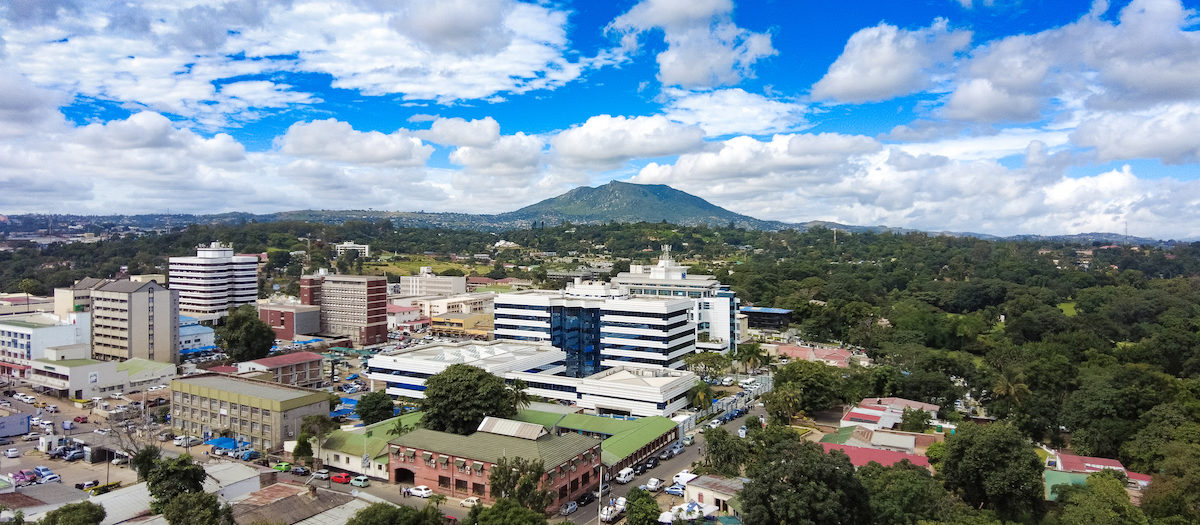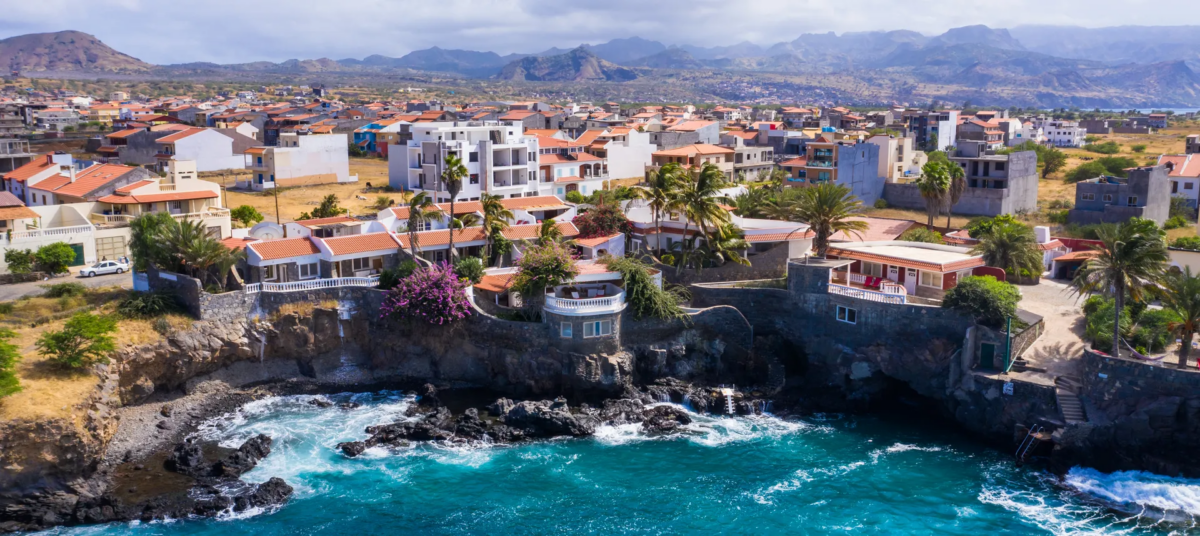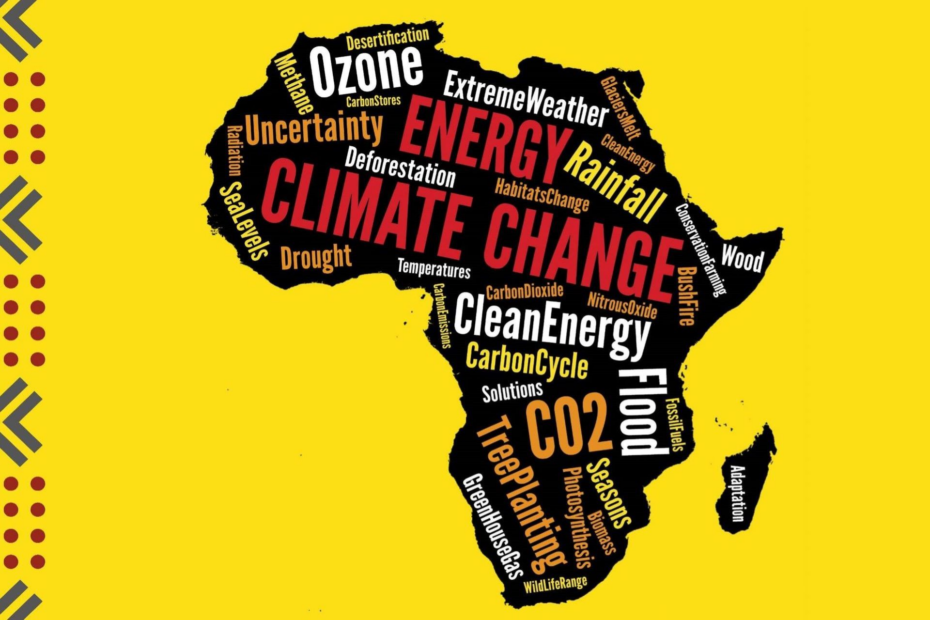The global community is experiencing the impacts of climate change, and Africa is no exception to this phenomenon. In fact, with its vulnerable ecosystems and large populations that rely heavily on agriculture, the continent is particularly at risk. However, African countries have not been sitting idly by waiting for someone else to take action. Instead, many nations have taken bold steps towards mitigating and adapting to the effects of climate change. Here are 7 African countries at the forefront of climate awareness and action.
1. Seychelles
Seychelles, an archipelago of 115 islands in the Indian Ocean, is renowned for its rich biodiversity, beautiful coral reefs, and diverse wildlife. However, with its low-lying islands and reliance on tourism, Seychelles is highly susceptible to the impacts of climate change, like rising sea levels and coral bleaching. Despite these challenges, Seychelles has emerged as a climate-conscious nation, proactively working towards preserving its unique ecosystems.
As part of its climate awareness program, Seychelles has embarked on several noteworthy initiatives. One of these is the Seychelles’ Blue Economy Strategic Framework and Roadmap, which aims to balance economic growth with the sustainable use of ocean resources. The country also made headlines by swapping a portion of its national debt for a commitment to expand marine conservation.
Through these efforts, Seychelles continues to demonstrate its unwavering dedication to combating climate change. With a pledge to reduce economy-wide emissions by 26.4% by 2030, compared to business-as-usual, and a vision to achieve a decarbonized net-zero emissions economy by 2050, Seychelles is setting an inspiring example for global sustainability. Also Read: Restoring Africa’s Ecosystems for Future Generations
2. Malawi
Malawi, also known as the “Warm Heart of Africa,” is a landlocked country in southeastern Africa that’s rich in natural beauty and biodiversity. Its economy heavily depends on agriculture, which is, unfortunately, vulnerable to the effects of climate change – including unpredictable rainfall patterns, floods, and prolonged droughts. Despite these challenges, Malawi has shown remarkable determination in addressing climate change issues.
As part of its commitment to addressing climate change, Malawi has taken significant steps in implementing the National Climate Change Management Policy in 2016. This policy aims to ensure a coordinated and harmonized approach to managing climate change programs, including the establishment of the Climate Change and Green Growth project. This project focuses on enhancing resilience to climate change impacts and promoting a green growth path.
Notably, Malawi has adopted ambitious economy-wide targets for reducing greenhouse gas emissions. By 2040, the country aims to cut emissions by 6% unconditionally, with an additional 45% reduction conditional on support. This demonstrates Malawi’s dedication to sustainable solutions and involving local communities in climate change mitigation efforts.

3. Mauritius
Mauritius, the “Star and Key of the Indian Ocean,” is an island nation located off the southeast coast of the African continent. This paradise island boasts a rich biodiversity and a vibrant economy heavily reliant on tourism, sugar, textiles, and services. However, being a small island developing state, Mauritius is highly susceptible to the adverse impacts of climate change, such as rising sea levels, increasing temperatures, and unpredictable weather patterns.
In response to the impending climate change threats, Mauritius has embarked on a commendable journey of climate change mitigation and adaptation. Through the Maurice Ile Durable (MID) policy, the country is determined to transform itself into a green, sustainable island, embracing sustainable development practices across various sectors. A key component of this strategy is the promotion of renewable energy sources, striving to achieve 60% of energy production from green sources by 2030.
This ambitious goal involves phasing out the use of coal and increasing energy efficiency by 10% based on a 2019 baseline. By prioritizing these efforts, Mauritius aims to reduce carbon emissions and set an example for other island nations in the fight against climate change. Moreover, the government has implemented coastal management measures to safeguard its shores from erosion and rising sea levels. Together, these initiatives demonstrate Mauritius’ unwavering commitment to a sustainable future.
4. Kenya
Kenya, often referred to as the “Cradle of Humanity,” is a country in East Africa known for its diverse ecosystems, rich cultural heritage, and vibrant economy. It’s a land where the savannah meets the city, a place of natural beauty that ranges from the wildlife-dotted plains of the Maasai Mara to the bustling metropolis of Nairobi. Nevertheless, the harsh realities of climate change are not sparing this country. The increasing frequency of droughts affects both its agricultural sector and its natural ecosystems, and rising temperatures threaten its snow-capped peaks, such as Mount Kenya.
Understanding the urgency of the situation, Kenya has taken significant steps towards climate mitigation and adaptation. The government committed itself to the National Climate Change Action Plan (NCCAP), which aims to guide the nation towards low carbon and climate-resilient development. One of the key goals of this plan was to achieve a 10% tree cover in the country by 2022. Recently, the government renewed its bid by launching the Greening Kenya Initiative, which aims to plant over 15 billion trees by 2032.
Furthermore, the Kenyan government is encouraging the adoption of clean and renewable energy and has made remarkable progress in this endeavor. For instance, they have launched the impressive Lake Turkana Wind Power project, which generates a whopping 310 megawatts of electricity. With ambitious goals, Kenya aspires to mitigate climate change impacts and pave the way for a sustainable future.

5. Gabon
Gabon, located in Central Africa, is renowned for its diverse wildlife and extensive national parks. The nation is primarily covered in lush rainforests, home to a plethora of species, and it boasts over 800 kilometers of pristine Atlantic coastline. Despite its small population, Gabon plays a significant role in global climate mitigation efforts, mainly due to its vast carbon-sequestering forests.
Recognizing its unique position, Gabon has taken several proactive measures to combat climate change under its National Climate Plan. The country has committed to reducing its greenhouse gas emissions by 50% by 2025. Gabon’s government has also taken a sizable step by pledging to maintain and increase the coverage of its forests, which act as vital carbon sinks. Also Read: East Africa’s hidden tourism treasures in the Indian Ocean
Moreover, Gabon is creatively creating the world’s first national park to protect gorillas, which are particularly vulnerable to climate change. The nation is fostering sustainable forestry management practices, and it has established multiple marine and terrestrial protected areas to conserve biodiversity while contributing to carbon sequestration. Through these strategies, Gabon aims to sustain its natural resources while effectively addressing the global threat of climate change.
6. Madagascar
Madagascar, an island country located in the Indian Ocean off the southeastern coast of Africa, is known for its rich biodiversity. The nation hosts countless species that are found nowhere else on Earth, making it a global hotspot for wildlife. However, climate change has significantly affected Madagascar’s unique ecosystems, with severe implications for its diverse flora and fauna.
In response to these environmental challenges, Madagascar has launched an ambitious National Climate Plan aimed at both mitigating climate change and adapting to its impacts. The government has established a network of protected areas covering more than 10% of its land area, creatively helping to preserve its unique biodiversity. They have also initiated extensive reforestation programs to restore ecosystems and enhance carbon sequestration.
Additionally, they have creatively promoted sustainable agriculture practices that help reduce soil erosion and enhance soil carbon sequestration. These initiatives demonstrate Madagascar’s commitment to safeguarding its unique biodiversity and contributing to global climate change mitigation while improving food security and conserving biodiversity.

7. Cabo Verde or Cape Verde
Cape Verde, an archipelago of ten islands situated in the central Atlantic Ocean, is a country that is rich in cultural diversity and distinctive landscapes. Despite its small geographical footprint, this island nation has a significant ecological role due to its diverse marine life and unique terrestrial ecosystems. However, Cape Verde is among the countries most vulnerable to climate change, with threats such as rising sea levels, increased rainfall variability and extreme weather events posing significant challenges.
In a bid to counter these threats, Cape Verde has launched a proactive strategy under their National Climate Change Adaptation Action Plan. The country is investing in renewable energy resources to reduce its carbon footprint, with a goal of achieving 100% renewable energy by 2025. Cape Verde is also implementing comprehensive coastal management strategies to combat the effects of rising sea levels on its shoreline.
Furthermore, the nation is improving water management systems to ensure water security amidst changing rainfall patterns. By these means, Cape Verde is striving to mitigate its climate change impacts and adapt to new climate realities.
8. Liberia
Liberia, located on the West African coast, is a country steeped in rich history and cultural diversity. Known for its lush rainforests, extensive coastal lines, and rich mineral resources, Liberia is a country that holds significant ecological importance. However, like many countries in the developing world, it faces considerable challenges due to climate change, including increased flooding, shifts in rainfall patterns, and rising sea levels that threaten coastal communities.
As part of its climate awareness program, Liberia has devised a National Adaptation Programme of Action (NAPA) on Climate Change. The plan targets the most vulnerable sectors, such as agriculture, forestry, and health, with interventions aimed at creating resilient communities. Key actions include promoting climate-smart agriculture, enhancing the capacity of the health sector to respond to climate-induced diseases, and managing forests sustainably.
Liberia has also prioritized education and awareness as a fundamental part of mitigating climate change, with efforts to incorporate climate change education across all levels of schooling. The country is determined to bolster its resilience against climate change and safeguard its populace and ecosystem.
Bottom Line
Africa’s approach to climate change offers a beacon of hope as various nations within the continent forge forward with innovative and pragmatic solutions to combat the effects of climate change. Despite the challenges, these countries demonstrate an unwavering commitment to resilience, proactively addressing the impacts on their ecosystems, economies, and communities through comprehensive adaptation programs.
This collective effort stands as a testament to Africa’s determination and resilience in the face of climate change. These actions send a powerful message to the rest of the world about the importance of unity, innovation, and action in addressing one of the most pressing issues of our time.



